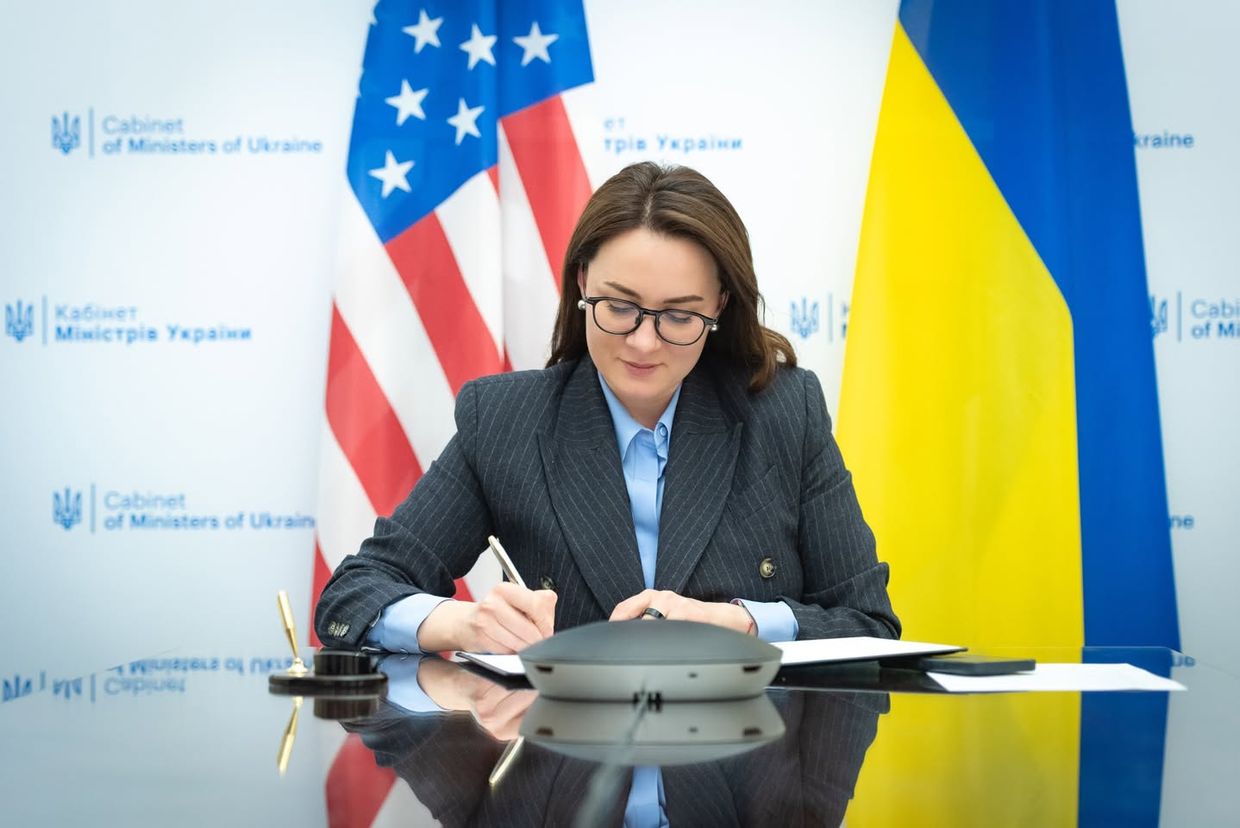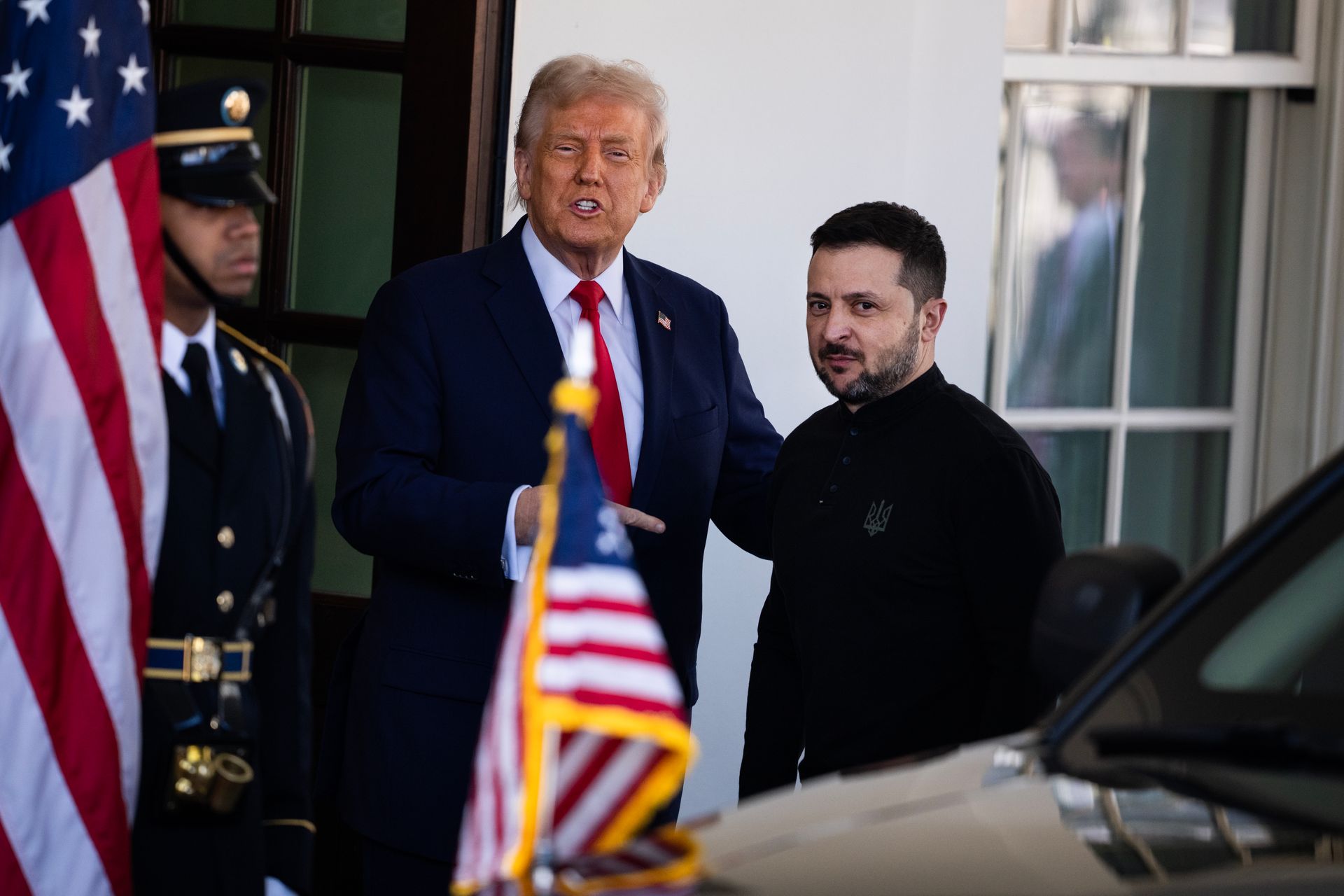US-Ukraine minerals deal holds first board meeting as reconstruction fund moves forward

Editor's note: This article has been updated to include clarifications about the Dobra lithium mine auction and military assistance as a contribution to the fund.
Ukraine and the U.S. held the first board meeting of an investment fund tied to a resources deal that has been a centerpiece of President Donald Trump’s administration’s talks with Kyiv in his second term.
The meeting on Sept. 3 launches the operations for the fund, designed to sustain American interest in Ukraine and help its war-torn economy with foreign investment now and for future reconstruction.
"I think it went very well," Deputy Economy Minister Yegor Perelygin told the Kyiv Independent after the meeting.
"The fund is not only a complex mechanism for economic growth and reconstruction — it's a market maker level instrument in the making that can foster the development of strategic sectors like mining and refining critical minerals."
At the meeting, the board approved new bank accounts, appointed members to four oversight committees, and cleared the hiring of a fund administrator and financial advisor, Prime Minister Yuliia Svyrydenko wrote on her Telegram channel.
The U.S. also announced its three board managers to the fund, who include Treasury Secretary Scott Bessent, and Chief Investment Officer Connor Coleman and Vice President and General Counsel Robert Stebbins from the International Development Finance Corporation (DFC).
Kyiv previously announced its three representatives on Sept. 1: Economy, Environment, and Agriculture Minister Oleksii Sobolev and his deputy Perelygin, and State Secretary of the Foreign Ministry Oleksandr Karasevych.
The next steps are to sign off on the investment guidelines and create a list of initial projects that "align with the fund's vision and objectives" that can be "feasibly developed," Perelygin said. The board hopes to kickstart the development of three "high-quality" projects in the next 18 months, he added.

The board is also planning follow-up discussions on potential projects through the fund, and a U.S. delegation will start scouting sites when it arrives in Ukraine next week. The government has already announced an auction for the Dobra lithium mine, which, if the winner elects to seek investment through the fund, could be one of its first projects.
Sobolev told Bloomberg TV on Aug. 29 that the fund was "progressing very nicely," adding that Ukraine is preparing to auction more mining licenses to create investment opportunities for U.S. companies. He noted the recently greenlit Dobra lithium project, saying that mining would be one of the more "interesting" areas for the U.S.
The lithium deposit in central Ukraine contains 80-105 million metric tons of the highly coveted material, used in batteries. Washington-backed mining company TechMet said it will bid on the project, although it could run into a legal battle with Australian firm European Lithium, which claims to have the rights to Dobra’s license.
Kyiv and Washington signed a deal on April 30 giving the U.S. special access to investment projects in Ukraine, spanning natural resources, related infrastructure, and even defense projects. For the first ten years, profits from the reconstruction investment fund will be fully reinvested in the economy.
The value of new U.S. military assistance could be considered as a nominal capital contribution to the fund, if Washington chooses to do so.
Many Ukrainian companies believe that if it works out, the agreement will inject critical foreign capital and technology into cash-starved sectors like critical raw materials. Natural resources, oil and gas, infrastructure, and defense projects are also on the table.
Trump became fixated on Ukraine paying America back for its military aid with raw materials and "rare earths" in February, shortly after returning to the White House. His initial proposals were slammed for being "colonial" and unfair to Ukraine. After months of tense negotiations and the infamous White House showdown, President Volodymyr Zelensky secured a deal that is generally well-regarded by Ukrainians.
The deal attracted significant attention early on, but as few details emerged over the following months, investors were left wondering if the deal was just another Trump stunt.
Behind the scenes, the DFC and Ukraine’s Support Public-Private Partnership Agency were busy hammering out the mechanism for the fund. The DFC shared more details of the fund at the Ukraine Recovery Conference in July.
Contrary to reports that the U.S. would secure automatic offtake rights from fund investments, the agreement only guarantees Washington the right to be notified of potential deals and to negotiate. Companies are not required to grant preferential terms and remain free to sell to other buyers.












